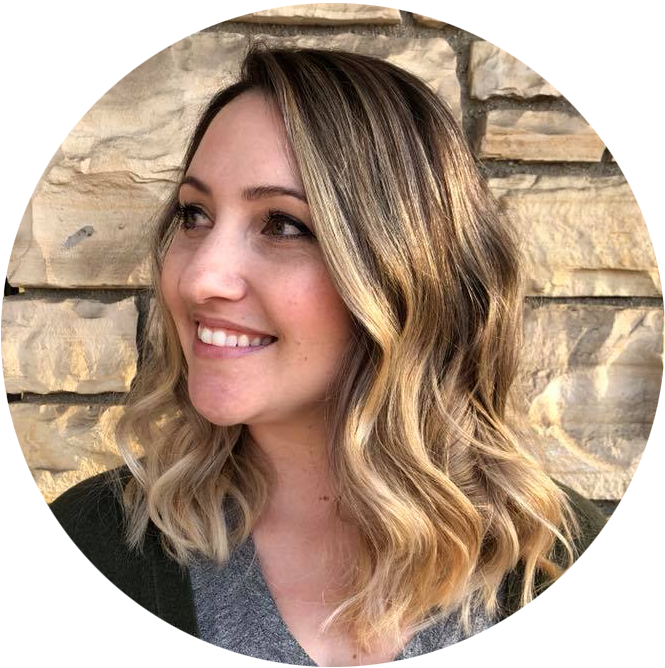After helping over 950 people get started online, I’ve discovered there are just THREE main Blogging Business Models.
But most people DON’T KNOW which bucket they fall into and are focused on the wrong things for growing their businesses.
Don’t let that be you!
In this article, I’ll walk you through:
- The 3 types of blogging business models.
- Why it is ESSENTIAL to know which model you fit into BEFORE you create any content.
- How BLOGGING can be used to mega-expand your audience (and revenue) for each business model.
I want you to be able to confidently classify yourself into one of these 3 blogging business models and know exactly how you could use blogging to kickstart your business.
So what ARE the 3 blogging business models?
Let’s go over each of them one at a time.
Prefer to watch? Check out my YouTube video on this topic:
What we cover:
#1: The Publisher Model
The Publisher Model is all about creating large amounts of content on high-volume topics and monetizing with display ads, affiliate links, and/or sponsored content.
This model is great for people who don’t have an interest in selling and want to focus heavily on content creation.
Examples of people following the publisher model include food bloggers, mommy bloggers, travel bloggers, lifestyle bloggers, news websites, etc. who make money from display ads, affiliate links, and sponsored content.
Pros of the Publisher Model
#1: Your blog IS your business. Your full focus is on creating content.
#2: You don’t have to worry about selling products or services.
#3) As your blog grows, you may hire a team of writers and editors.
#4) This business model is more passive than selling digital goods, products, or services.
Cons of the Publisher Model
#1) It may take longer to create a full-time income since you’ll need to get a lot of website traffic.
#2) Your income streams are tied to your traffic levels, which are not always under your direct control.
#3) Since you’re not selling your own products or services, you are at the whim of other companies’ advertising budgets.
What to focus on for growth
Publishers need traffic to their websites. The more eyeballs the better since that’s what will earn them more ad revenue, affiliate income, and sponsored brand work.
To achieve this, publishers need to create lots of content around topics with high search volume and low difficulty.
Their focus should be on mastering keyword research and publishing as much content as possible.
#2: The Online Business Model
The online business model involves selling something online.
This could be digital goods, online courses, a membership site, or even physical goods.
Many private practice owners can easily transition to this model by translating what they teach 1:1 into a course, group program, or membership.
Pros of the Online Business Model
#1) This model is perfect if you love teaching and have a proprietary process to help people achieve something.
#2) It’s a great option if you already have an audience elsewhere, like on social media, to sell to.
#3) This business model is usually very profitable and you have full control over the assets you’re selling.
Cons of the Online Business Model
#1) Selling things online requires an engaged audience that trusts you, which takes time to build.
#2) In this model, your blog is a marketing channel for your business, not your whole business.
#3) It is A LOT of work to create and maintain both paid and free content and you will need to learn other skills, such as email marketing, to succeed.
What to focus on for growth
Online business owners need to create content around topics that their specific customers would be searching for, even if the volume of searches is lower.
Because they need the RIGHT people reading their content in order to successfully pitch their products.
They may not need to create content as often, since creating targeted content is more important than creating large volumes of content in this scenario.
The focus for online business owners should be on publishing targeted content to attract their ideal customers, converting people onto their email list, and setting up automated selling systems.
#3: The Services Model
The Services Model involves offering done-with-you or done-for-you services for people.
People in this model want to build a blog and online presence in order to get more clients.
This is a common way private practice dietitians move online, by seeing clients virtually instead of just locally, in person.
Pros of the Services Model
#1) Blogging can be a highly effective way to bring in customers who will purchase your services.
#2) Sales can be relatively easy to make with this model since services or done-for-you offers are almost always in demand.
#3) This business model can be lucrative, but there is a limit on how many hours you can personally work 1:1.
Cons of the Services Model
#1) It takes time to grow your audience and build trust through blog content.
#2) In this model, your blog will be a marketing channel for your business, not your whole business.
#3) This is a way less passive model, since you’ll be trading your time for money and may need to do high-touch things like discovery calls.
#4) This is not a great fit for insurance-based businesses, due to complications with HIPAA and digital marketing.
#5) If you are providing services that are limited to a geographic area, like medical nutrition therapy, a large percentage of the audience that finds you online may not be able to work with you, since they can discover your content through Google from anywhere in the country or even the world.
(In that scenario, I highly recommend creating digital goods or other offers to serve people outside of your geographic area.)
What to focus on for growth
People following the services model also need to create content around topics that their specific clients would be searching for, even if the volume of searches is lower.
Because they also need the RIGHT people reading their content in order to successfully pitch their services.
They may not need to create content as often, since creating targeted content is more important than creating large volumes of content.
The focus for service providers should be on publishing targeted content to attract their ideal customers, converting people onto their email list by offering epic freebies, and offering spots to work with you to people on your list.
The Common Thread
Whether you want to make money from your content or from selling products or services, you STILL NEED AN AUDIENCE.
And THAT is where the power of blogging comes in.
Once you understand how to create content that attracts the right audience to your site, the potential is endless.
You can do some research to understand WHAT people search for online, then create content around those topics so that when people search for something, YOU are what shows up at the top of the search results.
So your assignment is to sit down and get some CLARITY on your business goals.
- Which blogging business model do you fall under?
- What type of content do you need to create in order to achieve your business goals?
If you can answer those 2 questions, whew, you’re already MILES ahead of other new bloggers and online business owners.
So I’m going to leave you with those 2 questions to ponder over today, but I’d love to continue this conversation in my Facebook group!
The FB group is also the best place to ask any follow-up questions about what we discussed here today.
Hope you have a great day and can’t wait to continue this conversation in my group!
Erica Julson is a registered dietitian turned digital marketing pro. She has over 12 years of experience blogging and building online businesses and has taught over 900 wellness professionals inside her signature program, SEO Made Simple.



